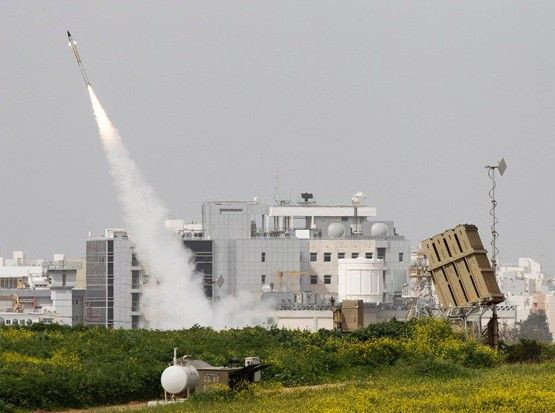Israel Palestine Truce Holds, Army Hails Triumph for Iron Dome

A ceasefire between Israel and Palestinian militants appeared to be taking effect Tuesday, with both sides keen to diffuse four days of escalating violence between the two.
The last Israeli air-strike occurred on Monday after which a small salvo of around six rockets was fired from Gaza across the border into Israel.
No long range rockets were fired and Israel did not respond, the New York Times reported.
The ceasefire brings to an end the worst four days of violence since Israel's bloody December 2008 incursion into the occupied territory.
Calm will be reciprocated with calm and fire will be reciprocated with fire, Israel's military chief of staff, Lt. Gen. Benny Gantz said on Tuesday, according to the New York Times.
More than 150 rockets have been fired into Israel since Friday, and over 1 million people displaced in the south of the country, accompanied by the closure of schools and public buildings.
At least 26 Palestinians have been killed by Israeli airstrikes in retaliation for the attacks.
The ceasefire is being hailed as a major success for Israel's new Iron Dome rocket defense system which managed to shoot down 54 of the nearly 70 rockets aimed at major cities in the south, according to the military.
There is a serious strategic change here, Dan Meridor, the minister of intelligence and atomic energy, told Israel Radio on Monday, according to Israel's Haaretz newspaper.
Years ago, it was not simple to incorporate into Israeli military doctrine the great importance of defense.
The brief conflict has also brought into sharp focus Israel's relationship with Egypt, who brokered the latest peace deal.
Since former president and Israeli ally Hosni Mubarak was deposed last year, the relationship between the two countries has been strained, with the current Egyptian regime far less likely to tolerate a full scale invasion by the Israeli military into Gaza this time around.
The latest clashes between Israel and Gazan militants are the bloodiest in months, but both Israel and Hamas seem keen to avoid the all-out-war that erupted three years ago claiming hundreds of lives.
Ever since, Hamas has been keen to distance itself from the rocket attacks, despite Israel holding it ultimately responsible for any attacks emanating from the areas it controls.
The vast majority of rockets fired have come from the Iranian-backed militant group Islamic Jihad, which has been challenging Hamas for control of Gaza.
© Copyright IBTimes 2024. All rights reserved.





















